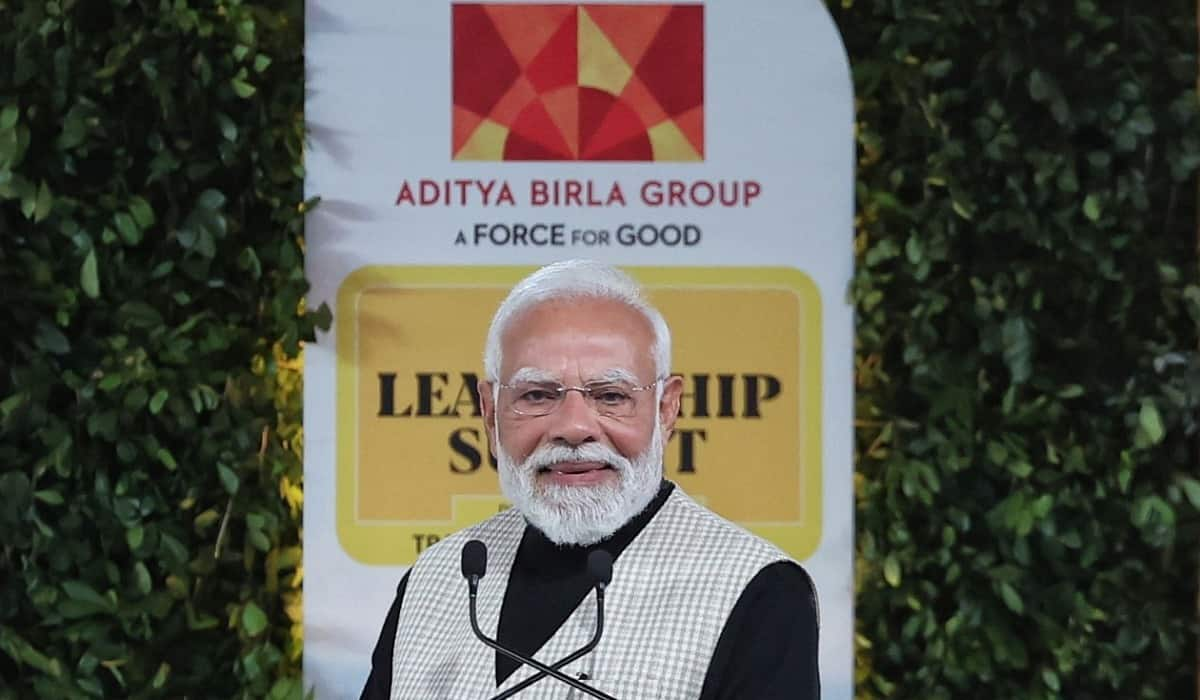Today is the birth centenary of Jan Nayak Karpoori Thakur Ji, whose relentless pursuit of social justice created a positive impact in the lives of crores of people. I never had the opportunity to meet Karpoori Ji but, I heard a lot about him from Kailashpati Mishra Ji, who worked closely with him. He belonged to one of the most backward sections of society, the Nai Samaj. Overcoming numerous obstacles, he achieved a lot and worked for societal betterment.
Jan Nayak Karpoori Thakur Ji’s life revolved around the twin pillars of simplicity and social justice. Till his last breath, his simple lifestyle and humble nature resonated deeply with the common people. There are numerous anecdotes that highlight his simplicity. Those who worked with him recall how he preferred to spend his own money for any personal matter including his daughter’s wedding. During his tenure as Chief Minister of Bihar, a decision was taken to build a colony for political leaders but he himself did not take any land or money for the same. When he passed away in 1988, several leaders went to his village to pay tributes. When they saw the condition of his house, they were moved to tears- how can someone so towering have a house so simple!
Another anecdote of his simplicity dates back to 1977 when he just took over as CM of Bihar. The Janata Government was in power in Delhi and Patna. That time, Janata leaders had gathered in Patna to mark Loknayak JP’s birthday. Among the galaxy of top leaders walked in Chief Minister Karpoori Thakur Ji, with a torn Kurta. In his own style, Chandrashekhar Ji asked people to donate some money so that Karpoori Ji could purchase a new Kurta. But, Karpoori Ji was Karpoori Ji- he accepted the money but donated it to the CM Relief Fund.
Social justice was most dear to Jan Nayak Karpoori Thakur Ji. His political journey was marked by monumental efforts to create a society where resources were distributed fairly, and everyone, regardless of their social standing, had access to opportunities. He wanted to address the systemic inequalities that plagued Indian society.
Such was his commitment to his ideals that despite living in an era where the Congress Party was omnipresent, he took a distinctly anti-Congress line because he was convinced very early on that the Congress had deviated from its founding principles.
His electoral career began in the early 1950s and since then, he became a force to reckon with in the legislative chambers, powerfully voicing the struggles of the working class, labourers, small farmers and youngsters. Education was a subject very close to his heart. Throughout his political career he worked to improve education facilities for the poor. He was a proponent of education in local languages so that people from small towns and villages can climb the ladder and attain success. As CM, he took many measures for the welfare of senior citizens as well.
Democracy, debate and discussion were integral to Karpoori Ji’s personality. This spirit was seen when he immersed himself in the Quit India movement as a youngster and it was again seen when he resisted the Emergency tooth and nail. His unique perspectives were greatly admired by the likes of JP, Dr. Lohia and Charan Singh Ji.
Perhaps one of Jan Nayak Karpoori Thakur Ji’s most significant contributions to India was his role in strengthening the affirmative action apparatus for the backward classes, with the hope that they were given the representation and opportunities they deserved. His decision was met with heavy opposition but he did not bow to any pressure. Under his leadership, policies were implemented that laid the groundwork for a more inclusive society, where one's birth did not determine one’s fate. He belonged to the most backward strata of society but he worked for all the people. He had no trace of bitterness in him, which is what makes him truly great.
Over the last ten years, our Government has walked on the path of Jan Nayak Karpoori Thakur Ji, reflecting in our schemes and policies that have brought transformative empowerment. One of the biggest tragedies of our polity has been that barring a few leaders like Karpoori Ji, the call for social justice was restricted to being a political slogan. Inspired by Karpoori Ji’s vision we implemented it as an effective governance model. I can say with confidence and pride that Jan Nayak Karpoori Thakur Ji would have been very proud of India's feat of freeing 25 crore people from the clutches of poverty in the last few years. These are people from the most backward sections of society, who were denied basic facilities nearly seven decades after freedom from colonial rule. At the same time, our efforts towards saturation- of ensuring every scheme reaches 100% coverage echoes his commitment to social welfare. Today, when people from OBC, SC and ST Communities are becoming entrepreneurs due to MUDRA Loans, it fulfills Karpoori Thakur Ji’s vision of economic independence. Likewise, it was our government which had the privilege of extending SC, ST and OBC reservation. We also had the honour of setting up the OBC Commission (which was opposed by Congress, sadly), which is working on the path shown by Karpoori Ji. Our PM-Vishwakarma Scheme will also bring new avenues of prosperity for crores of people belonging to OBC communities across India.
As a person belonging to the backward classes myself, I have much to thank Jan Nayak Karpoori Thakur Ji for. Unfortunately, we lost Karpoori Ji at a relatively young age of 64. We lost him when we needed him the most. Yet, he lives on in the heart and minds of crores of people due to his work. He was a true Jan Nayak!













